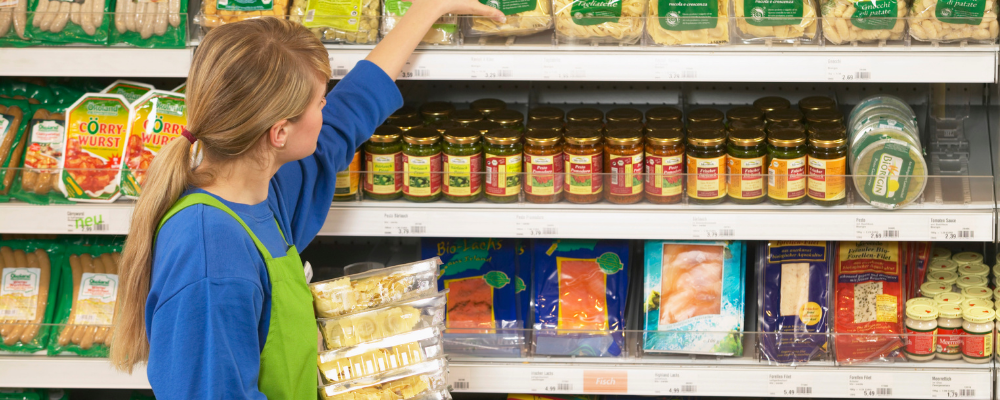Drop off your CV
We'd love to hear from you. Send us your CV and one of our specialist consultants will be in touch.

Following the seismic Brexit referendum result on June 23rd, it’s fair to say that the winds of change have been blowing through a number of industries. But, with large amounts of food ingredients sourced abroad, the Consumer industry has been affected more than most.
And within nothing has quite summed up the general atmosphere quite like the debacle between food giants Unilever and Tesco, which came to be colloquially known as ‘Marmitegate’. When the pound reached its sharpest post-Brexit depth, down 16% from its previous valuation, Unilever were feeling the squeeze. How could they offset the increased costs they were facing, even if only in the short term? They chose an option that was destined to be unpopular. In early October, Unilever declared that it was to raise prices across its product range by 10%, in order to offset the difficulties faced in importing food ingredients with a weaker sterling.
Fellow consumer giant and supermarket Tesco was not going to take this outcome lying down. After the price hike from one of its largest suppliers, it responded combatively, insisting that consumers shouldn’t be forced to pay a flat increase due to the supplier’s difficulties in sourcing its ingredients, and pulling Unilever’s products from its shelves, which included well-loved brands such as Marmite. As a result there was an awkward stand-off, as neither brand wanted to budge on their positions, leading to the disgruntlement of consumers. An agreement was announced and although the figures seem to vary, the increase looks like it won’t be too far off the initial 10% planned (the Guardian has reported an average rise of 5.7%).
In an age where authenticity is becoming increasingly valued within consumer markets (a preference that is reflected everywhere from the increased interest in craft beer over regular lager, to the growing need for clean-label ingredients), the image of Tesco as a principled corporation standing up for consumers against increased prices will be a lasting memory from the debacle. Indeed, “although this story affected Tesco’s share price negatively, it likely generated significant positive PR for the company and helped to contain price increases,” said Barclays.
There was a silver lining for Unilever, though. Marmite sales were up by 61% following the period of press hysteria that surrounded the news breaking, and relieved consumers flocked to buy their other products too after seeing the imbroglio in the news. Perhaps the rationale at Unilever has been the old adage that ‘there is no such thing as bad publicity’, and judging by the figures, they’re not far wrong.
Unilever is not the only food ingredients company to ask supermarkets for a price increase. Typhoo, Birdseye, and Pepsico have all looked to offset their increased costs by upping the costs of their core product range. While this kind of decision is bound to draw consumers’ ire, New York-based Birdseye, whose ingredients are primarily priced in dollars, have made it clear that the rise is, so to speak, a necessary evil. The additional supply costs mean that either a price raise (of up to 12%) is necessary, or the pack size would have to decrease at the same rate; for example, a 12-pack of fish fingers might only contain 10, or a 20-pack, only 18. Meanwhile, Leicester-based Walkers, owned by the PepsiCo conglomerate, is seeking similar price rises (5-10%) for the additional costs on imported ingredients. It is clear that the high-profile debacle between Unilever and Tesco is symbolic of pricing battles across the whole industry. Many predict there will be more standoffs between brands and retailers to come.
Other food ingredients suppliers, though, are hedging their bets after Brexit, waiting for negotiations to properly commence before making strategic changes. Chief Executive Paul Bulcke last Thursday stated that Brexit needed to take “shape” and “form” before the food giant. Nestle has continued to grow despite the unexpected June result, though it has revised its forecast of the year’s sales down to 3.5% from the previous 4.2%. Nonetheless, like Unilever, the company has indicated that it has faith that its core, well-loved products will continue to delight consumers. “I think Kit Kat is going to stay a very enjoyable great break”, said Bulcke. Would it have been wise for Unilever and co. to follow Nestle’s example?
Unilever’s well-loved product line commands such customer loyalty that it is probably the biggest asset that the global consumer brand has. This has allowed them to sail fairly comfortably through a situation that resulted from poor negotiations on their part. After all, asking for a flat 10% price hike across the board is bound to raise eyebrows when Unilever source their ingredients globally, with many sourced right here in the UK.
Of course, differences in real exchange rate such as Brexit has caused will have some impact on imported ingredient prices, which is bound to impact the retail price in turn. And there are, of course, consumers who will complain at any price increase at all being unfair. Nonetheless, many thought the 10% figure was a bit high, considering ingredient prices have mostly been fluctuating by single digits.
Brexit has thrown up a number of challenges for the food ingredients sector – but there are also a lot of opportunities on the cards as well, with encouraging noises being made by the government about ‘going global’ in its outlook.
As a business CSG are having a significant number of conversations with clients who are looking to expand and develop their businesses throughout 2017. If you are looking to ‘go global’ in your career search or your search for talent, we’ve got you covered.